#sans-culottes
Photo
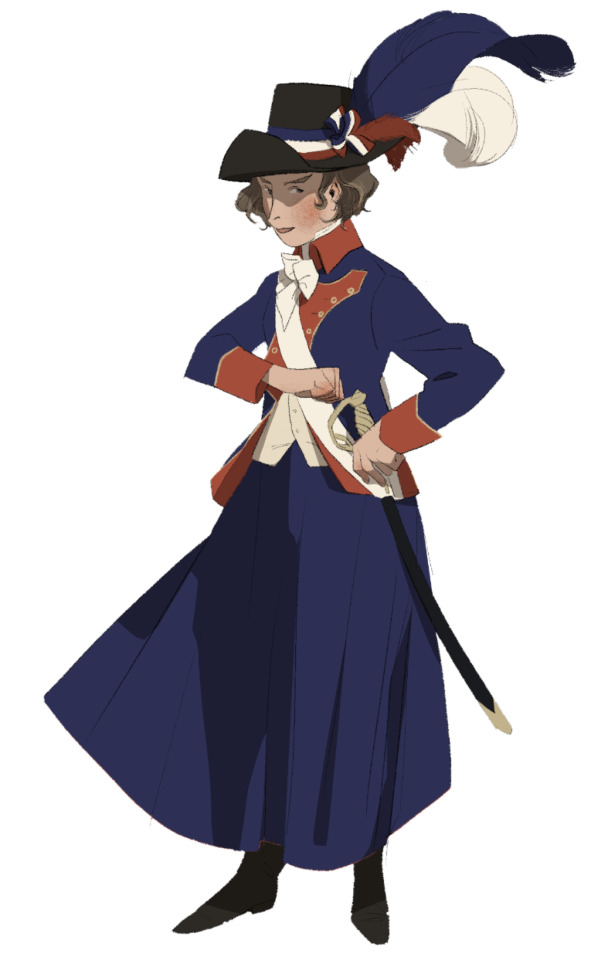
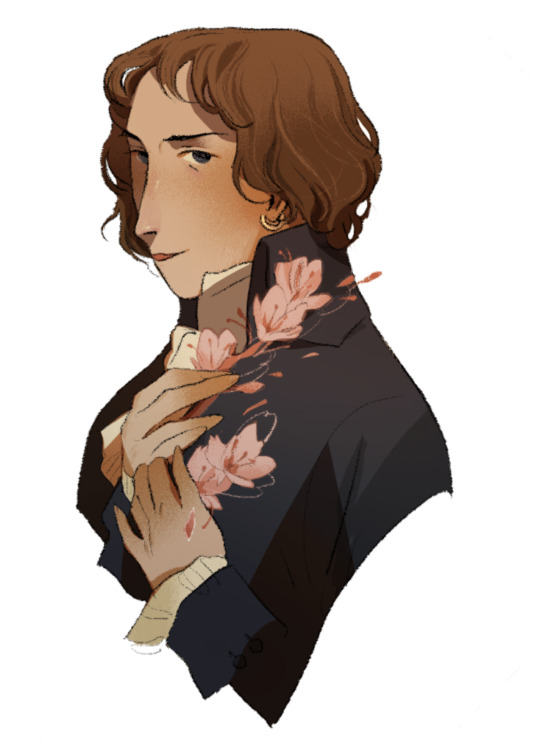
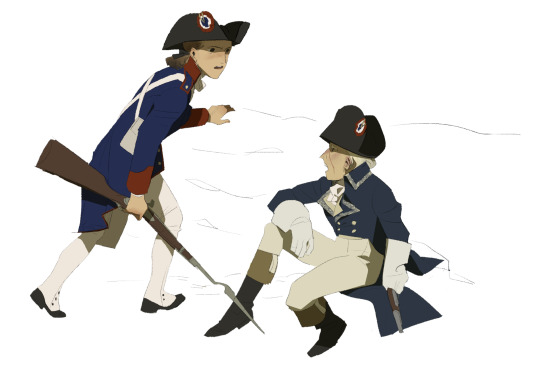
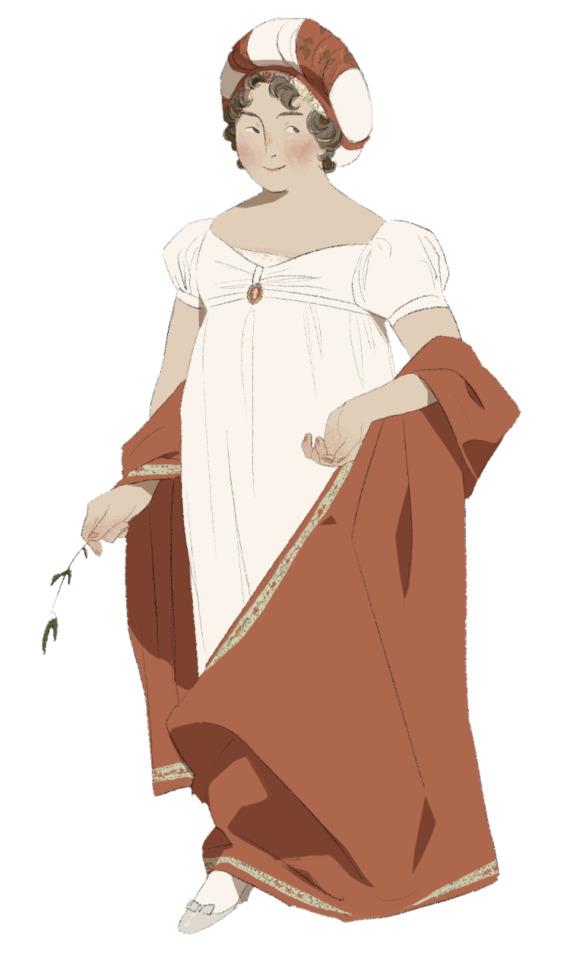
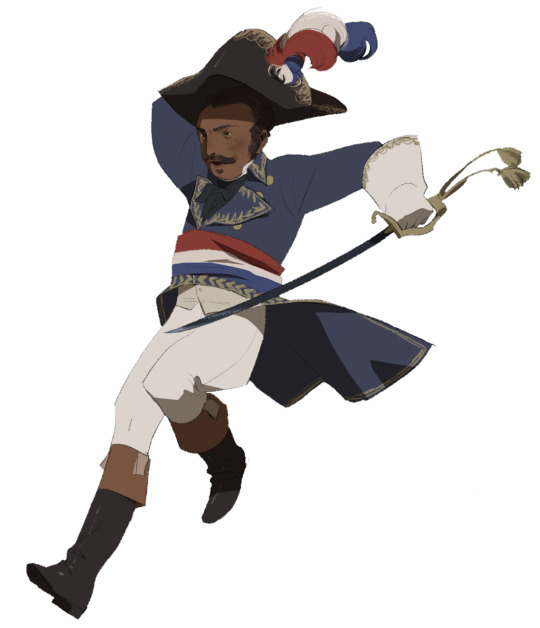
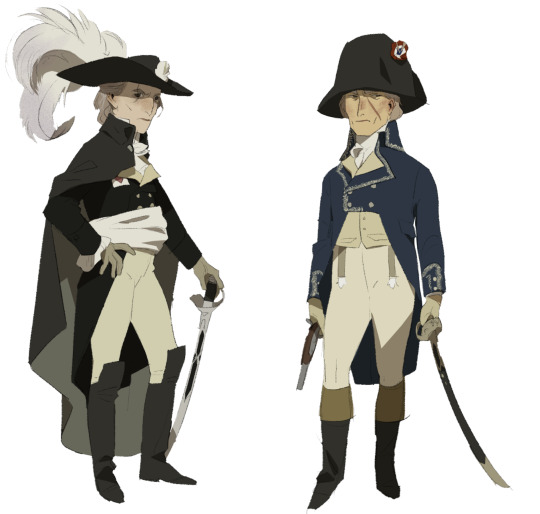
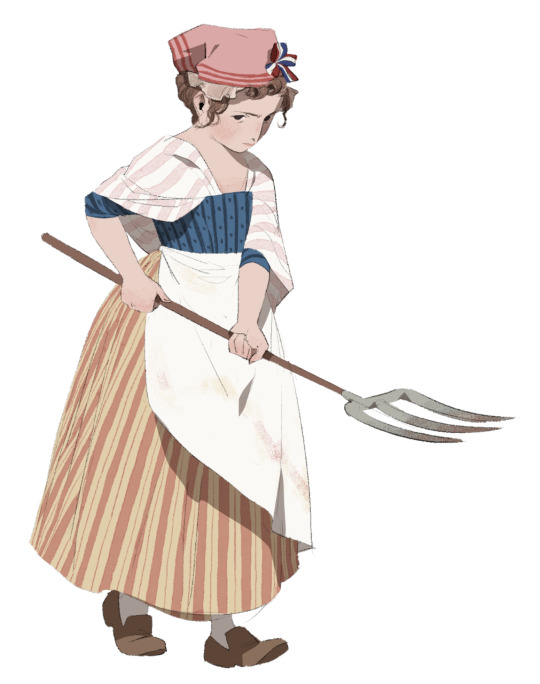
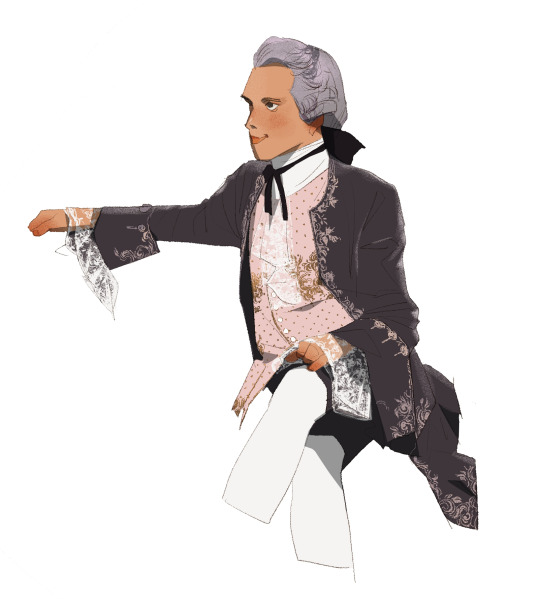
Some non-Robespierre pieces that I haven’t shared here aaa
#pauline leon#dumas#cimordain#ninety-three#victor hugo#dangerous liaisons#saint just#madame de stael#sans-culottes#theroigne de mericourt#personal work
2K notes
·
View notes
Note
I haven't seen anyone bring this up so I'll go ahead and say this, I feel pretty unsettled about Hawk Moth akumatazing a pregnant person
Like, akumatized people are more resistant and I know Bustier had an armor, but still..
The best part is that the episode acknowledged how stress isn't good for a pregnant woman when Chloe made a scene in class, yet nothing like that was said when Ms. Bustier was akumatized.
#immaturity of thomas astruc#iota#miraculous ladybug#miraculous ladybug salt#gabriel agreste#hawkmoth#hawk moth#monarch#caline bustier#miss sans-culotte#chloe bourgeois#queen bee#queen b
65 notes
·
View notes
Note
Do you think things would've been different had Louis and Marie Antoinette accepted constitutional monarchy.
Oh, definitely. I am bad at alternate history (which I dislike about myself, because it is super interesting), so I can't guess how, but it would sure be a very different situation if they honestly accepted constitutional monarchy.
There is this misconception of the French revolution as the "mob"/revolutionaries jumping at the first opportunity to crush royals, but in reality, Louis and MA were given so many chances and things dragged for several years until it became clear that they were uninterested at being constitutional monarchs. Then and only then the republic was founded and monarchy abolished. (And all of this before any of them lost their head).
We know is that the people of France - revolutionaries at least - wanted constitutional monarchy more than Louis and MA did. National Constituent Assembly prepared everything for it to be put into place, all while the royal couple pretended they wanted to play along. In the writings and speeches of many prominent revolutionaries, there is a clear will and hope for constitutional monarchy. Only a minority (mostly among Girondins) called for a republic. Still, the project of the constitutional monarchy was well underway and constitution prepared when Louis and MA decided to flee the country.
It became clear in the summer 1791 that Louis never really supported the idea of a constitutional monarchy. And yet, they did not proclaim the republic then and there - Louis got another chance. So things dragged for another whole year, but this is where the idea of a republic was truly born: through Louis' actions and treason.
So given that the king's treason and unwillingness to accept the constitutional monarchy led to the proclamation of the republic (and (in)directly, other things, such as the war with foreign powers and a surge of counter-revolutionary efforts to name a few), I can definitely say that things would've been different if he and MA honestly accepted constitutional monarchy.
#i can't say what else would've happened#what would be the treatment of sans-culottes and their rights#would there be food shortages etc#i can't guess how stable or long lasting this constitutional monarchy would've been#but with the foreign and civil wars and counter-revolutionary efforts avoided there would be more time to figure things out slowly#build institutions and organize things#so even if constitutional monarchy proved unstable the revolutionaries would have more time to organize things#versus what happened - working in the situation of a war and civil war and counter-revolutionary efforts#try building a country from scratch in the middle of a war with half of europe#another thing that is often forgotten when comparing the “good” 1789 and “bad” 1793#there was no war in 1789#anonymous#frev#french revolution
26 notes
·
View notes
Text
tbh I’m relatively new to francophone scholarship on the French Revolution and I unfortunately cannot read French-- but just from skimming the autotranslations of this article by Pascale Pellerin, Algeria writer Kateb Yacine’s 1984 play, Bourgeois sans-culotte ou le specter du parc Monceau, presents as possibly one of the most compelling dramaturgical interpretations of the French terror and Maximillien Robespierre’s historical memory imo and should honestly be considered a primary example of his radical influences. Yacine unfortunately died while revising the manuscript, so it was never published in the form he intended, but there have been partial translations online, and a clip from the posthumous 1988 Paris performance is on youtube as well.
The play on Robespierre was commissioned by and performed mostly in Arras, aka Robespierre’s hometown, but it would be remiss to shrug Yacine’s interpretation of the French Revolution as a provincial hagiography or redundant to previous French leftist nationalist discourses. Bourgeois sans-culotte is thoroughly a transnational story about revolutionary violence and freedom, and a critical recuperation of Robespierre’s legacy from the perspective of France’s former colonies. For Yacine especially, it was important to highlight the parallels in historiographic receptions of the “reign of terror” to colonial propaganda of the Algerian Revolution and other anticolonial guerilla struggles in Haiti, Vietnam, and Algeria
Posting my favorite sections from Pellerin’s analysis, translations provided by google lmfao; highlights & underline mine--

“Kateb Yacine's piece constitutes a circular vision of History of which Robespierre would be the centre. Whether one is in Indochina, in France, in Algeria, in the 18th century or during the Algerian war, the image of Robespierre speaks of the violence of History and its justification in the face of the violence of the oppressor, that of monarchical power, that of colonialism, that of Nazism. The representations of the guillotine, the Terror and Robespierre constitute a major ideological challenge for Kateb Yacine and take on a particular meaning depending on the place and the space.” (p4).

Note: Yacine’s conspicuous influences from Marx and direct homage to the opening line, “a spectre is haunting Europe—the spectre of communism," from The Communist Manifesto.

Note: Yacine’s decision to weave his autographical self and experiences in colonial Algeria into re-telling the French Revolution.

Note: Yacine’s portrayal of the guillotine as indeed a “ambivalent tool”-- not as a post-Thermidorian carcicature of popular violence against the bourgeoise-- but due to its later mobilization by the French colonial government in the execution of over 2300 Algerian revolutionaries 1956-63.
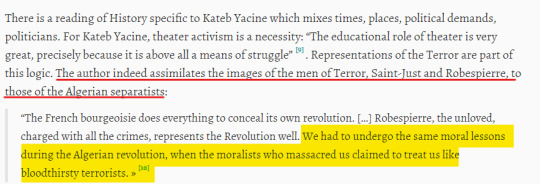
Note: Yacine’s mediations on Francophone historiography and moralization of the “Reign of Terror”; direct resonances for Algerian revolutionaries on the role of terrorism in struggles for national indepedence from French colonialism

Note: Yacine’s explicit affirmation of Robespierre as the original and legitimate symbol of an enlightened French republic-yet-to-come, in spite of the revolution’s failure to manifest it.

Note: Robespierre attempting to reach Karl Marx prior to his confrontation with de Gaulle, the latter of whom mocks Robespierre as “[having] nothing of a man of action.” Empower by his meeting with Marx, Robespierre responds to this attempted demasculation [perhaps paralleling popular portrayals of his feud with Danton?] with, “And you, the great de Gaulle, you have subdued the generals, but you have not seen Second Lieutenant Le Pen, who is threatening to take power” (Yacine in Pellerin, pp27).
#french revolution#maximilien robespierre#robespierre#kateb yacine#Robespierre the Sans-Culotte or the Ghost of Parc Monceau#there is more but this is some of the sections I thought would be interesting to put together + my own brief notes#archives#edited for clarity's sake#frev
72 notes
·
View notes
Text
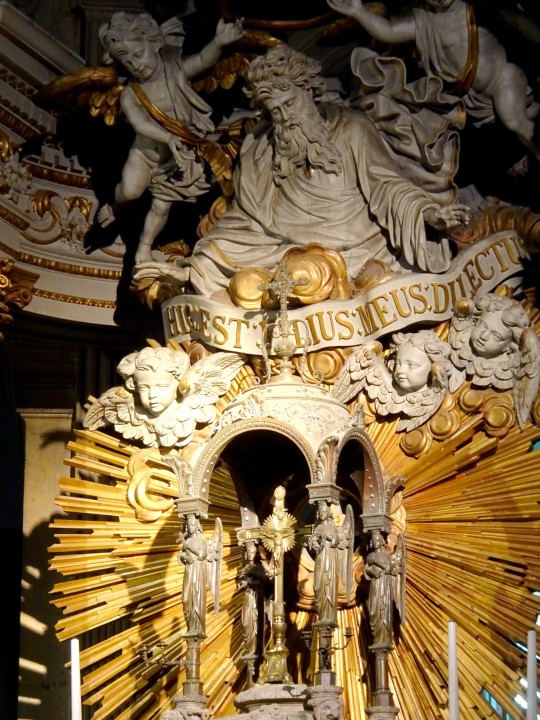
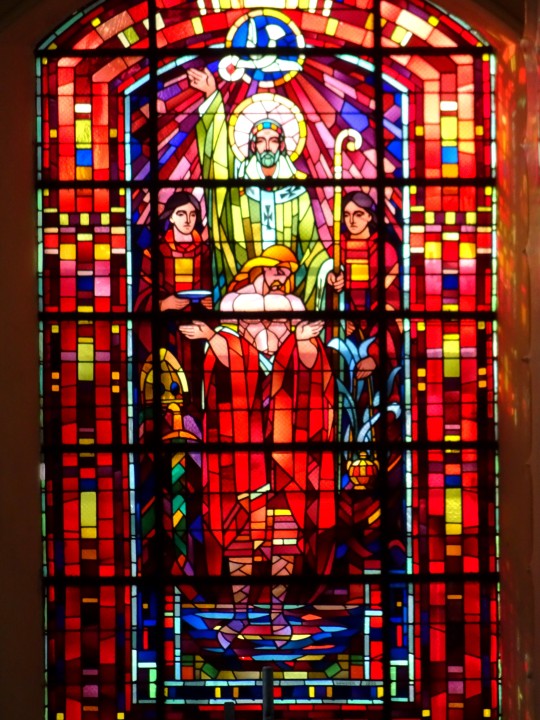
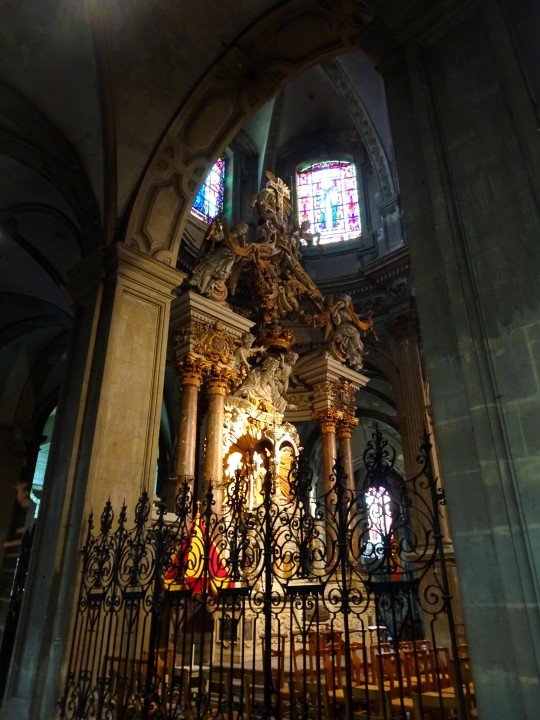

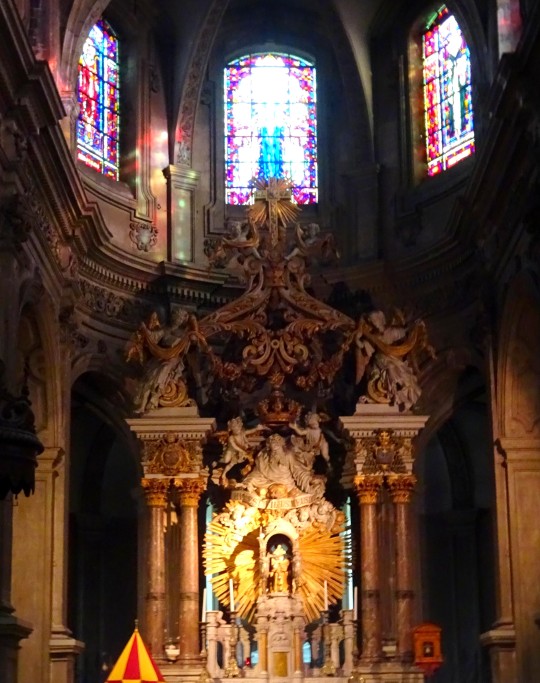

Balade à Cambrai : la Cathédrale Notre-Dame-de-Grâce, avec un autel baroque et des vitraux (baptême de Clovis, je pense, et des religieuses houspillées par des sans-culotte).
#nord#cambrai#baroque#cathédrale notre-dame-de-grâce#religieuse#clovis#révolution française#sans-culotte
5 notes
·
View notes
Text
I wore a frilly shirt the other day and everyone said I look like the French revolution, I look like Astarion Baldursgate, etc. Mean and bullying!
5 notes
·
View notes
Text
Write a fic about Andre, Alix and Miss Sans-Culotte time traveling with Kim inspired by the first song that comes on your playlist when you hit shuffle
2 notes
·
View notes
Note
What is your take about the claim found around here that the French revolution didn't care about workers?
I must say that I didn't see this claim being made around here (you mean on Tumblr? In the frev community?) It sounds like a horribly reductive and misleading view on the Revolution, because the workers (I assume it means sans-culottes) were an integral part of the Revolution. They were among the main societal driving forces behind it, so I don't know what this claim is trying to say.
Well, actually, I know. There is a take (often made in Anglo sources, but not exclusively there) that the Revolution did nothing but replace the aristocracy with another dominant class - the bourgeoise. And this is definitely not a good news for the workers.
Which yes, in some ways, if you look at the state of France at the end of frev (= at the time Napoleon rose to power), you could say that the bourgeoise flourished and sans-culottes were overpowered.
But this ignores the crucial role the sans-culottes played during the revolution, and also how they were silenced.
The first misconception here is that the French Revolution was a revolution made by one social class (no matter how you wish to define classes; that's another complexity). But many different, often opposing, societal forces were pro-revolution, fighting for their own rights. Heck, there were aristocrats who embraced the revolution (particularly in the early days). And yes, many revolutionaries were from the bourgeoise. But there are also the sans-cullotes, who fought for their rights. To ignore their existence and their role is baffling, when even the negative, stereotypical portrayals of the Revolution include them ("the mob", "unwashed masses on the streets" etc.) These portrayals are bad and drenched in classism, but one would think that the existence of workers in the French Revolution was a well-known phenomenon.
And they were not just "there". They did things. Sans-culottes absolutely fought for their rights, and they played an important role in the Revolution. Some of the most radical revolutionary options were made of sans-culottes or pro-sans culottes. Sans-culottes were organized in their local communities and played an important role (like the Parisian sans-culottes and the Paris Commune). And yes, it also includes instances of revolutionary violence (like the September massacres, which were not exclusively sans-culottes but definitely included them). Sans-culottes played an important role, from the Women's March on Versailles in 1789, to insurrections and demands put on the government in 1793-1794. They shaped the politics and they shaped the Revolution. While they were not the ONLY group involved in the Revolution, it seems baffling to exclude them or to pretend that frev was exclusively about bourgeoise.
And yes, the goals of the bourgeoise and sans-culottes often differed, and that led to tensions. And among the bourgeoise politicians, there were those sympathetic towards the sans-culottes and those unsympathetic, which led to further tensions. Plus, the sans-culottes were not powerless, since they pushed for their demands and fought for their rights. There is a lot of complexity in the bourgeoise and sans-culotte relationship during the Revolution, but none of that makes poor workers somehow... not exist, or not an integral part of the revolution.
And yes, sans-culottes were eventually silenced, which is part of the history of the Revolution and its growing conservativism in later years (1794 and after), which led to their defeat. (Until they rose again and again in the 19th century). But the claim that "revolution did not care for workers" implies that the workers were not an active and very important part of the Revolution, which is incorrect.
#ask#anonymous#frev#french revolution#i am not sure where this claim comes from#so if it refers to something else please clarify#but to say that 'the revolution did not care about workers' implies that the workers were not an integral part of this revolution#and yes i know there are takes - even some recent ones - that 'well actually' frev was not about the poor but about the bourgeoise#which is so bad and incorrect#because yes bourgeoise def wanted their rights and often did not care about the sans-culottes#but the poor were definitely there and fighting and demanding their rights#it was their revolution too#to try to take away frev from the poor is not only unfair but factually incorrect
47 notes
·
View notes
Text
Just remembered when some American anarchist got really mad at me on here and called me a fascist cop apologist because I poasted my opinion that actor David Harbour was hot as the cop on Stranger Things.
1 note
·
View note